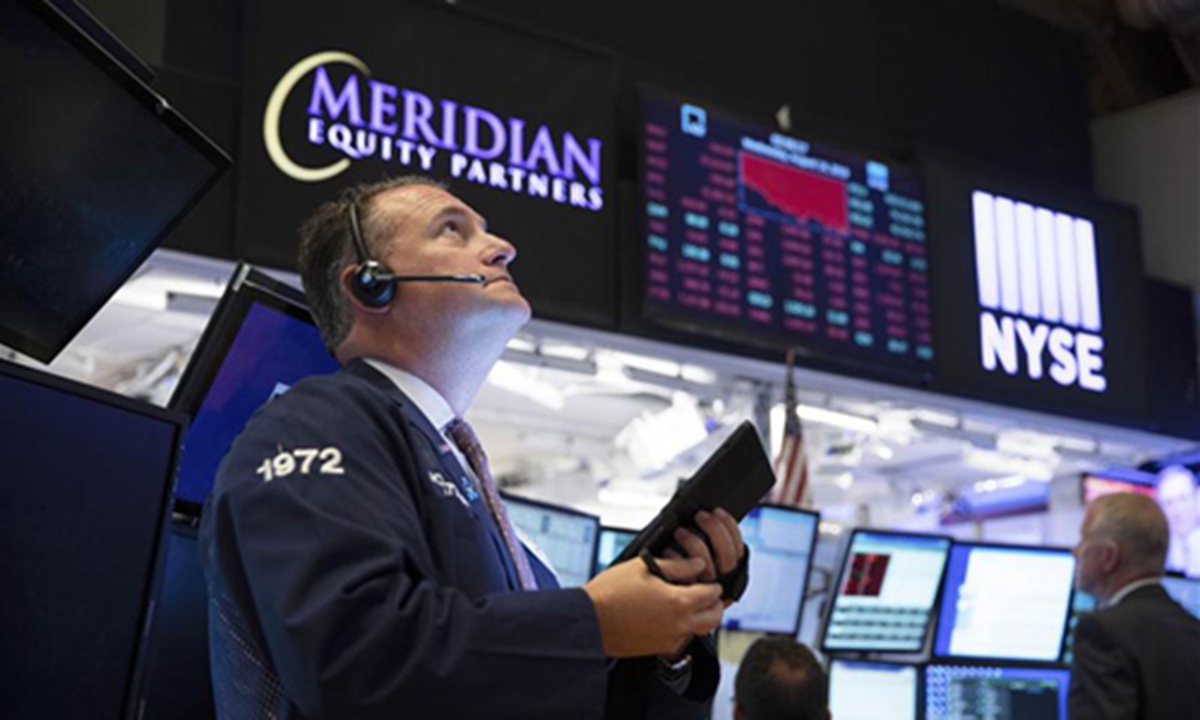US stock turbulence tells rising danger of tech divide
Source: Global Times Published: 2020/9/9 20:14:12

Photo: Xinhua
The US stock market appears to be entering a period of heightened volatility, led by big technology and internet companies, which seem facing greater uncertainty after several months of untethered price surges.
All the three major US stock indices closed sharply lower on Tuesday. The tech-heavy NASDAQ plunged more than 4 percent, falling into correction territory - a loss of at least 10 percent from a recent high - in the fastest-ever rout, just three trading days after setting a record close on September 2.
The three trading sessions of US technology sell-offs also saw the six American tech giants - Apple, Microsoft, Amazon, Alphabet, Facebook and Tesla - lose more than $1 trillion in market valuations.
With chip-equipment makers being among the worst market performers on Tuesday, some analysts were quick to draw the connection between the technology rout and the news of a reported US government plan to ban future supplies to Chinese chipmaker Semiconductor Manufacturing International Corp (SMIC), the largest microchips maker in the country.
To a certain extent, the wider swings in US stock market may underline investors' anxiety over the policy uncertainty in the run up to the upcoming presidential election on November 3.
This is because the Trump administration has kept on flaring up US-China tensions in an apparent attempt to play "bashing China" card in order to win more votes from his political base.
Nevertheless, some of the punitive measures aimed at clamping down on Chinese technology companies will inevitably end up skewering American companies, too.
From a broader perspective, technology firms have become obvious beneficiaries of the coronavirus pandemic around the world, pointing to the future that technology competition will only get even fiercer among countries.
In this context, there is an increase in the urgency of US government suppression on tech rivals from other countries such as China, which are developing faster in emerging sectors like telecommunications and artificial intelligence.
The Trump administration may hold the belief that its mean-spirited efforts to clamp down on Chinese technological development will pay off, as Washington's implicitly political protection for American technology firms will help them sharpen their global competitiveness and build their own technological hegemony in the upcoming new round of global economic restructuring.
Yet, the recent turbulence in big American tech stocks may reflect the growing uncertainty as things won't go as the politicians in Washington plan. There are growing worries that the US technology stocks had shot up too fast in such a short period of time. Indeed, even after the three-day correction, NASDAQ is still at least 60 percent higher from its March low.
Moreover, American politicians' approach of disregarding global business rules to push for a technology divide with China has proved to be undermining global investor confidence in the direction of the world's technology evolution.
All these factors are sources of uncertainty, which will disrupt the politicians' dream of offering a quick lift to American tech firms, by pummeling other countries' tech aspirants. Now the US capital market has already sensed the spread of that uncertainty more or less, and the global financial markets need to be vigilant about the risk.
Posted in: GT VOICE